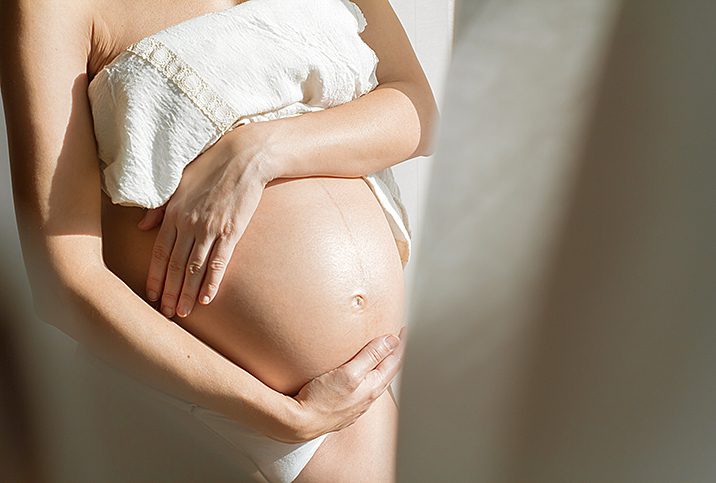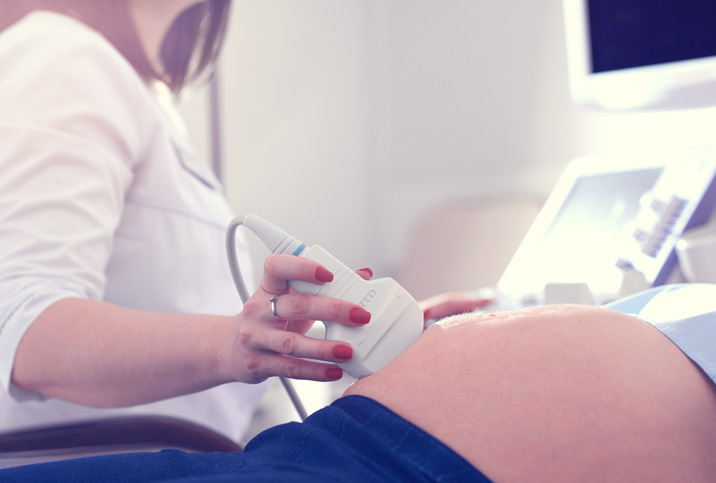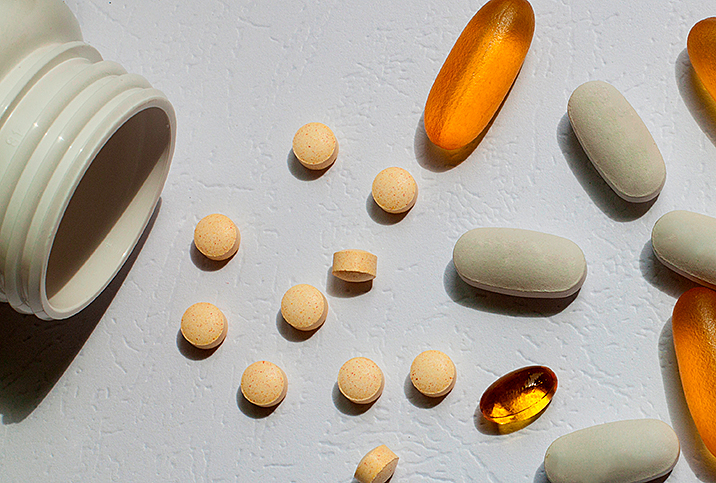Prenatal Supplements Are Not One-Size-Fits-All

When browsing the supplement aisle at your nearest drugstore, it's easy to find the prenatal section overwhelming. With so many brands, colorful bottles and buzzwords like "whole-food-based" and "organic," it's difficult to determine what kind of prenatal vitamin supplement you should buy. What's safest for you and your baby?
How do you know what prenatal vitamin is a good one?
A good way to determine what overall prenatal supplement is best for you is to take a close look at the ingredient list. A June 2021 paper published in Nutrients, a peer-reviewed journal of human nutrition, evaluated 180 commercial prenatal supplements and found "they varied widely in mineral content, often contained only a subset of essential minerals and the levels were often below our recommendations."
Because of these variations, the paper's authors looked at research regarding optimal levels of each mineral for prenatal supplements and proposed recommendations for pregnant women.
Their nutritional recommendations were based on the following sources:
- An analysis of several research studies on mineral deficiencies and supplementation during pregnancy.
- The Food and Drug Administration's (FDA) recommendations.
- The FDA's tolerable upper limit (the maximum amount of each mineral that can be safely consumed).
- The National Health and Nutrition Examination Study (NHANES), which evaluates the average intake of vitamins and minerals consumed by American women ages 20 to 39.
What are the mineral amounts my pregnant body needs?
With such a wide variety of options, choosing prenatal vitamin supplements can feel overwhelming, but by comparing the information about each mineral below to your known health risks, you can make an informed decision.
For example, women who are trying to become pregnant are encouraged to take 400 mg of folic acid daily until they reach 12 weeks of pregnancy to help prevent neural tube defects such as spina bifida, or when the baby’s spinal cord doesn’t properly develop.
Whether you are navigating a bout of morning sickness or need to fill in dietary gaps, talk to your doctor before you start taking prenatal vitamins.
Calcium
Calcium is important for the baby's bone and tooth development, but it also has significant benefits for the pregnant mother. Low levels of calcium are associated with high blood pressure and preeclampsia, a serious and sometimes fatal complication of late pregnancy.
The researchers recommend 550 mg of elemental calcium per day, with higher amounts needed for women with low milk or vegetable consumption. For women at risk for preeclampsia, pregnancy-induced hypertension (PIH) or preterm birth, 1,000 mg of calcium is recommended. If you take more than 600 mg, divide the dose in two.
Take calcium with vitamin D for best absorption. It’s a good idea to ingest it separately from iron, zinc and magnesium. They will compete with each other for absorption.
Chromium
Limited data indicates that chromium levels decrease during pregnancy. Chromium helps regulate blood sugar levels. In pregnancy, it potentially helps in reducing the risk of gestational diabetes. It may also help with postpartum depression.
The authors of the paper recommend taking at least 100 micrograms daily in the form of chromium picolinate. Avoid chromium chloride, which studies have shown is mostly ineffective. For those who have diabetes or are at risk of developing gestational diabetes, 200 micrograms may be recommended.
Copper
We need copper for iron absorption and brain development, among other important things. Take this supplement when you are trying to conceive since low copper levels have been linked to an increased risk of miscarriage.
Additionally, studies suggest supplementation can help decrease depression, anxiety and anemia. The Nutrients article recommends taking 1.3 mg of copper per day.
Iodine
Iodine can help prevent birth defects. It is required for normal brain development during pregnancy and the first months of life. The consequence of low iodine is so severe, the U.S. began supplementing salt with iodine in the 1920s.
One hundred and twenty countries require the use of iodized salt, but it is optional in the U.S. Up to a third of the American population doesn't use it at home (possibly favoring sea salt), and most processed foods are made with non-iodized salt.
Low iodine is strongly associated with hypothyroidism and intellectual disability, and is possibly related to preeclampsia and autism. The paper also noted, "Severe iodine deficiency during pregnancy results in increased rates of miscarriage, stillbirth and infant mortality and impaired cognitive function of infants."
If the deficiency continues in the second half of the pregnancy, it can cause permanent damage to the baby's brain.
"U.S. women are becoming more prone to iodine deficiency," said Kelsey DeSalvo, M.D., an endocrinologist in Salt Lake City, Utah, who has initiated studies highlighting deficits of iodine in prenatal supplements.
"Women may have low iodine if they are on a nutrient-restricted diet—for example, if they limit iodized salt, dairy, commercial bread products, seafood and eggs," DeSalvo added. Iodine is a part of a healthy pregnancy and an overall balanced diet.
DeSalvo noted the American Thyroid Association recommends women take a prenatal supplement with 150 mcg of iodine. If you don’t believe your diet contains enough iodine, speak with your doctor or a registered dietician.
Iron
By the end of pregnancy, not only have you made a small human, you also have made another 5 or 6 cups of blood. We need iron to make hemoglobin, the protein in red blood cells that carries oxygen—and it is also important for normal fetal brain development.
One study indicated mothers with a low amount of iron had double the risk of having a child with autism.
Since brain development happens in the first months of pregnancy, it is important to test iron levels early on and again at the beginning of the third trimester, when there is a substantial increase in the need for iron. If there are iron gaps in your diet, consult with your doctor to better fill-in-the-blanks.
The bottom line
A healthy pregnancy begins with a nutritious diet. This list is just the start. The side effects of going without other important vitamins like 400 mcg of folic acid or vitamin B12 shouldn’t be ignored.
Not all prenatal vitamins contain docosahexaenoic acid (DHA), an essential omega-3 fatty acid, so ask a registered dietician and your doctor for the specifics—and if your vitamins should include DHA.
Connect with your healthcare physician to help you choose the best prenatal vitamin supplement for you and your growing baby.


















